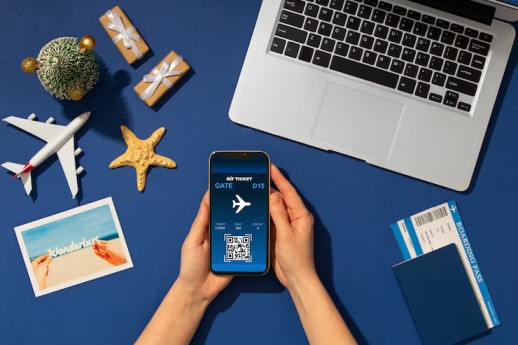
Discover 10 innovative ways travel agents can use technology to streamline bookings, enhance customer service, and stay competitive in the industry.
Technology is changing every industry today, and travel is no different. As travelers learn to use technology better, they want more personalized, quick, and smooth services. This shift is changing what travel agents do. No longer do they depend only on manual work; technology helps them provide better experiences and meet the changing needs of customers.
Benefits of Using Online Booking Systems
Online booking systems, a key aspect of travel technology solutions, make it easier to reserve travel. They help travel agents handle flights, hotels, and other arrangements quickly. These systems cut down on manual tasks, lower the chances of mistakes, and provide round-the-clock service for customers.
Examples of Popular Booking Platforms for Travel Agents
Top platforms such as Amadeus, Sabre, and Travelport provide all-in-one solutions for handling bookings, showing real-time availability, and facilitating seamless transactions. Many of these platforms are also utilized by top travel companies using AI to further enhance customer experiences through smart recommendations and predictive analytics.
CRM software assists travel agents in organizing client information, monitoring preferences, and ensuring personalized communication. It is essential for fostering lasting relationships and providing customized travel experiences.
Tools for Managing Client Relationships Effectively
Platforms such as Zoho CRM, HubSpot, and TravelContact allow agents to keep client profiles, send specific offers, and track customer interactions for a smooth experience.
Travel agents can use chatbots and messaging apps like WhatsApp Business and Facebook Messenger to quickly answer client questions. These tools offer 24/7 support and improve customer satisfaction.
Benefits of Personalized Communication in Building Trust
Travel agents can create trust and loyalty with their clients by using messaging platforms and personalizing their interactions. This approach helps secure repeat business and positive referrals.
Social media sites such as Instagram, Facebook, and TikTok are ideal for travel agents to highlight destinations, promotions, and success stories from clients.
Best Practices for Travel Agents on Platforms Like Instagram and Facebook
Data analytics helps travel agents spot new trends, like favorite destinations or seasonal choices, so they can adjust their services to meet these needs.
Tools to Analyze Customer Preferences
Tools such as Google Analytics, Tableau, and Power BI assist agents in monitoring customer actions and improving their marketing plans.
Features Every Travel Agent’s Website Should Have
A professional website should include:
Examples of Great Travel Websites for Inspiration
Websites like Expedia, Booking.com, and smaller boutique agencies provide great examples of clean design, easy navigation, and compelling content.
Mobile apps allow users to access bookings, client details, and supplier messages anytime and anywhere. They improve flexibility and lead to quicker responses.
Best Apps Travel Agents Should Consider
Travel-specific apps like TripIt and TravelPerk are essential for itinerary management, while apps like Slack aid in team communication.
Virtual and augmented reality help clients explore destinations, hotels, and attractions before they go. This gives them a better understanding of what to expect, making them more excited and confident about their bookings.
Showcasing Destinations Through Immersive Technology
Tools like Matterport and Google Expeditions help travel agents create virtual tours, offering clients a unique way to explore before they travel.
Offering various payment methods like credit cards, digital wallets, and cryptocurrencies makes it easy and safe for clients.
Tools to Integrate Payment Gateways Seamlessly
Platforms like Stripe, PayPal, and Square simplify payment processing while maintaining robust security standards.
Technology assists travel agents in working with suppliers, providing quick updates on availability and pricing.
Platforms for Real-Time Collaboration and Inventory Management
Solutions like Travefy and Tourplan offer real-time collaboration with suppliers, helping agents deliver the best deals to their clients.
Travel agents must use technology to remain relevant and competitive. By using tools that improve efficiency, communication, and customer service, they can grow their businesses and succeed in the busy travel industry. Adopting new innovations now leads to a better, more connected future for agents and their clients.
© 2024 Crivva - Business Promotion. All rights reserved.